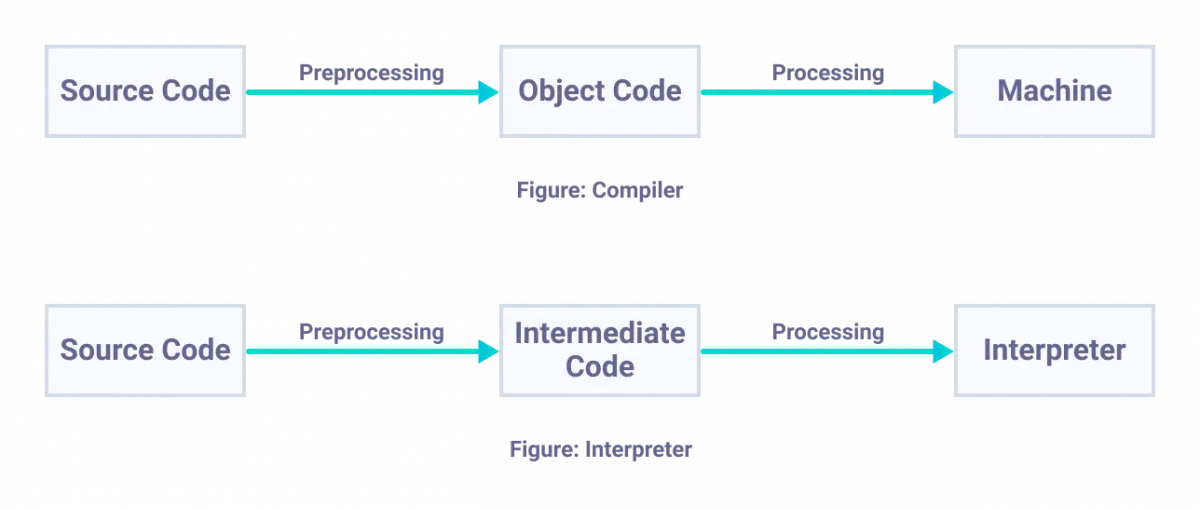Interpreter Vs Compiler : Differences Between Interpreter and Compiler
01 Jun 2021In this article, you will learn the differences between interpreters and compilers.
We generally write a computer program using a high-level language. A high-level language is one that is understandable by us, humans. This is called source code.
However, a computer does not understand high-level language. It only understands the program written in 0’s and 1’s in binary, called the machine code.
To convert source code into machine code, we use either a compiler or an interpreter.
Both compilers and interpreters are used to convert a program written in a high-level language into machine code understood by computers. However, there are differences between how an interpreter and a compiler works.
Interpreter Vs Compiler
| Interpreter | Compiler |
|---|---|
| Translates program one statement at a time. | Scans the entire program and translates it as a whole into machine code. |
| Interpreters usually take less amount of time to analyze the source code. However, the overall execution time is comparatively slower than compilers. | Compilers usually take a large amount of time to analyze the source code. However, the overall execution time is comparatively faster than interpreters. |
| No Object Code is generated, hence are memory efficient. | Generates Object Code which further requires linking, hence requires more memory. |
| Programming languages like JavaScript, Python, Ruby use interpreters. | Programming languages like C, C++, Java use compilers. |
Working of Compiler and Interpreter
